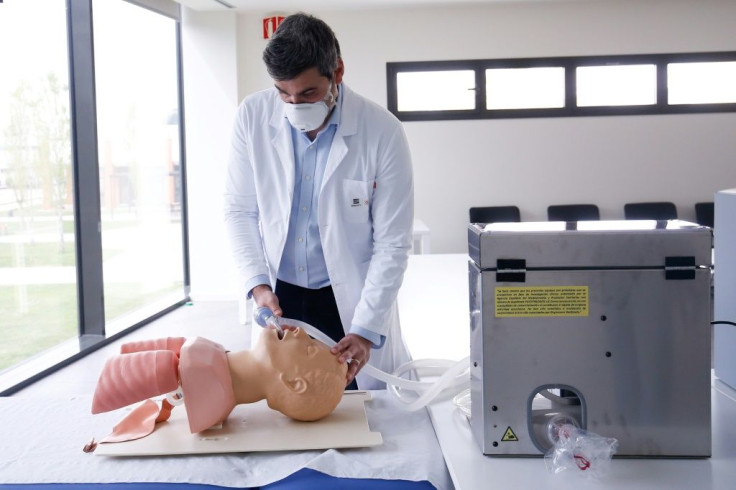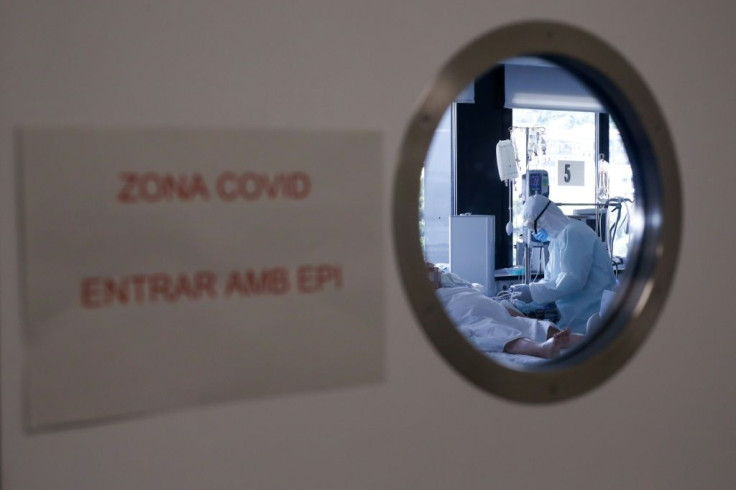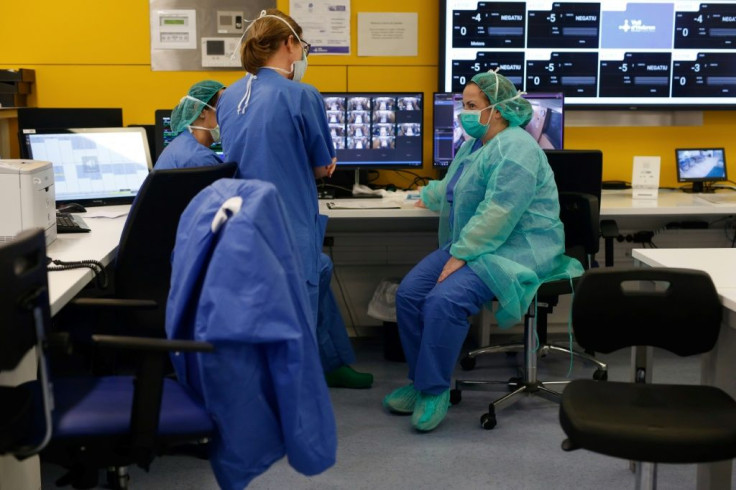Barcelona's Biggest Hospital Devoted To Virus Patients
There is an eerie silence in the corridors of Barcelona's biggest hospital and angst inside the intensive care units, where all efforts are being directed to fighting the coronavirus pandemic.
Where once the Vall d'Hebron hospital treated 50 different types of ailments, it now funnels 90 per cent of its resources into the battle against COVID-19, which has claimed almost 14,000 lives to date across Spain, even if officials see a "downward trend" emerging.
With 56 beds in the state-of-the-art intensive care unit (ICU) opened in 2018 not proving enough, beds and ventilators have been moved into unfamiliar spots, including classrooms which once hosted university seminars.
"We ended up having two consecutive days with 24 patients admitted per day. Every hour we had to intubate a patient, connect them to a ventilator and admit them to the ICU," explains the head of the service, Ricard Ferrer.

"We still have one or two very critical weeks ahead of us... The ICU battle will be long," Ferrer said surveying a large control screen displaying clinical data of all the patients admitted to his ward.
They include people of all ages, struck down by a vicious disease that can progress quickly to symptoms of suffocation.
"Sometimes there were only a few hours between the time we assessed them in the hospital and the moment they were admitted to the ICU," says Ferrer.

Antonio Alvarez, a 33-year-old nurse, dons his coat, shoe covers, glasses and a highly-protective mask before starting his shift in the ICU.
A ventilator is not enough for some patients, and doctors have resorted to a new technique: they artificially oxygenate blood by extracting it with a machine and then returning it into the body.
"Instead of putting it in the lung, we directly oxygenate the blood," explains Alvarez, adding that he experiences the pandemic "like a bereavement.

"I've had my phases of anger, of denial, you go through all of them.
"Now we are still a little overwhelmed but it is better. Fewer patients are dying," he says.

Since February, the hospital has been preparing for what was then a remote epidemic.
"We have transformed a 50-specialism hospital into a single-speciality hospital," said its healthcare director, Antonio Roman.
The hospital created six new intensive care units and collected old ventilators used for teaching and research.
Soon, they expect to receive new models produced at the nearby SEAT car factory.
"We have tripled the capacity of ICU beds," explains Ferrer, with about 170 currently occupied.
Inevitably, the use of protective equipment and medicines "has multiplied a lot," he added, to the point where masks have to be reused and doctors have to switch drugs since "we've run out of some of them.
"Material is lacking, but it is a global problem. Under normal conditions it would be unacceptable but given the situation, you have to adapt and manage," says Mari Angeles Moreno, a nurse and union delegate at the hospital.
Yet after three weeks of lockdown in Spain, "there are some green shoots," says Roman.
A week ago, the number of hospitalised patients began to decline and the emergency department received fewer cases.
The entrance to the hospital is unusually calm. "It is a place of peace and tranquility like never seen before," insists the care director.
More good news comes from the ICU, where Xavier Roges, a 30-year-old doctor, puts on his protective overalls to attend to one of the few patients awake.
After having a tracheostomy, the man is recovering and is expected to return to a regular ward.
"He is breathing well, eats well, feels hungry," Roges says.
"These should be a given -- but in these times it feels like an achievement."
© Copyright AFP 2024. All rights reserved.











